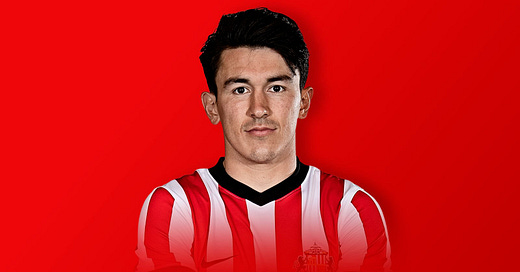The words leave little open to interpretation. According to Luke O’Nien, a professional footballer currently playing for Sunderland, there is ‘zero work on the psychological side of this sport (football)’ in academies.
O’Nien was talking to Sky Sports, as part of an interview that has triggered debates about the level of psychological support afforded t…
Keep reading with a 7-day free trial
Subscribe to The Mind Room to keep reading this post and get 7 days of free access to the full post archives.


